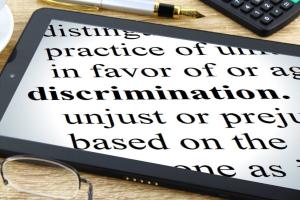
Source: Jessica45 on Pixabay
Where is the line between religious freedom and discrimination? Does someone’s right to practice their religion include the right to discriminate against those outside their religious beliefs?
These debates continue to rise because the lines are fuzzy. Some judges see things differently than another collection of justices on the Supreme Court. Similarly, you and I may not agree on where the line is between one person’s religious freedom and another person’s freedom from discrimination.
So what is the solution? Where is the line?
Each time this argument comes up, I come back to the same thoughts from both a secular government point of view and from a follower of Jesus point of view.
Secular point of view
Studying history, we know that people have long used the guise of religion to wield power and oppress others. Religion has been the banner under which tyrants and their followers have carried out all manner of persecution and discrimination.
We know this. And if we want to avoid repeating the mistakes of history, we must be hypervigilant against this.
When I was a child in school, I often read and heard the pride-filled declaration that the United States is a melting pot. Because we are a melting pot of different cultures and religions, one majority religious group cannot run roughshod over everyone else. One majority group cannot prevent the minority groups from accessing goods and services.
The government has a duty to ensure this does not occur, and -until recently- our country was on a trajectory of improving equitable access for everyone, all minorities included.
If we permit citizens to use their religious beliefs to refuse to do business with certain groups of people, where does it end?
A Christian landlord could refuse to rent to a Muslim or a Jew. A conservative Christian dentist could refuse to hire a divorced female hygienist because he believes divorce is a sin. A wedding venue owner could claim his church teaches against being unequally yoked and refuse to host an interracial marriage. A white supremacist restaurant owner could claim his understanding of the Bible is that other races are inferior, so he refuses to allow black or brown skinned people to eat in his restaurant.

It is indeed a slippery slope.
Looking back at history, we see that we have been down this road before. And it never ends well.
At the same time, where do we draw the line? Must a Jewish website designer be required to create an anti-Semitic website for a white supremecist group? Should a Muslim be forced to decorate a cake with writing that says, “Muslims must go back to where they came from”?
Obviously, I cannot imagine anyone arguing in favor of that.
However, the difference is – in those examples, we are asking whether the oppressed person should be required to participate in the perpetuation of their oppression.
Perhaps that is the line. If the person in question belongs to the majority and chooses actions which further oppress and marginalize minority groups, we collectively agree that the person may not use religion as an excuse to do so.
Follower of Jesus point of view
As a follower of Jesus, my most prominent question in all of this conversation has been, “Is refusing service to or interaction with others a vital part of my faith?”
Does following Jesus require me to shun others or turn them away? Or is following Jesus supposed to prod me to the exact opposite of that?
When I look at Jesus’ interactions with people, I definitely do not see actions that support refusing service to those I deem “sinners.” Quite the opposite, Jesus feasted with prostitutes and tax collectors. Jesus healed the daughter of a Greek (non-Jewish) woman. Jesus even showed kindness to a Roman soldier, the enemy, and healed his servant.
Though Jesus’ disciples had believed, as part of their Jewish faith, that they could not share meals with non-Jews, God’s Spirit revealed God’s desire for more inclusivity. On his way to Caesarea, Jesus’ disciple Peter realized that God did not want him to call any food or any person impure or unclean: “You are well aware that it is against our law for a Jew to associate with or visit a Gentile. But God has shown me that I should not call anyone impure or unclean.”
Over and over again in scripture, we see that God does not have favorites. Even more, we see that God calls God’s people to go into “the world” to show God’s love and proclaim the good news. How can we show love if we refuse to interact with those who are different than we are?
Refusing to do business with anyone who does not share our exact religious beliefs is antithetical to the teachings and example of Jesus.
Where is the line between religious freedom and discrimination?
The line may be fuzzy. However, if one person’s religious practices require them to limit the freedoms of another person, that is across the line. If one person’s religion insists on turning other people into second-class citizens with limited access to goods and services, that is across the line. If a majority religious group uses their position to marginalize minority groups, that is across the line.
Finally, most religions teach some concept of the Golden Rule:
Do to others as you would have them do to you. – Jesus, Christianity
Not one of you believes until you wish for others what you wish for yourself. – Muhammad, Islam
Do not do unto others what is injurious to yourself. – Shayast-na-Shayast, Zoroastrianism
Treat not others in ways that you yourself would find hurtful. – Udana-Varga, Buddhism
What is hateful to you, do not do to your neighbor. – Hillel the Elder, Judaism
Regard your neighbor’s gain as your own gain, and your neighbor’s loss as your own loss. – T’ai Shang Kan Ying P’ien, Taoism
This is the sum of duty: do not do to others what would cause pain if done to you. – Mahabharata, Hinduism
I am a stranger to no one, and no one is a stranger to me. Indeed, I am a friend to all. – Guru Granth Sahib, Sikhism
Perhaps the Golden Rule is the line between religious freedom and discrimination. And if we strive to treat other people as we want to be treated, we will not cross the line.












